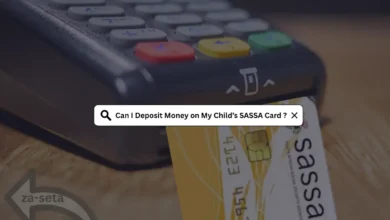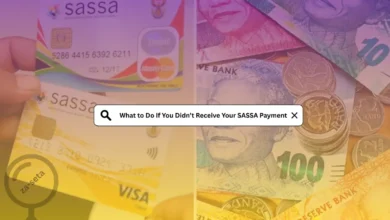Can Earning More Than R5,000 a Month Affect Your SASSA Grant? A Reality Check for South Africans

Earning over R5,000 a month? Find out if SASSA can cut off your grant, how income affects eligibility, and what steps to take.
The Morning That Changed Everything
Lindiwe, a 28-year-old single mother in Khayelitsha, had been receiving the SASSA Child Support Grant for three years. Life wasn’t easy, but the R510 per child each month helped with groceries and school supplies. Then she got a job. It wasn’t permanent—just a three-month admin assistant contract that paid R5,500 a month.
She was excited and nervous.
“Will they cancel my grant because I’m working now?” she asked her neighbour. “Will SASSA find out?”
That’s the question many South Africans ask—and today, we’re here to break it down for you.
2. Understanding How SASSA Monitors Your Income
SASSA (South African Social Security Agency) administers different grants based on eligibility—including income. When your income rises, it may impact your ability to receive some types of support.
The key idea here is “means testing.” That means SASSA looks at how much money you earn each month to determine whether you still qualify for a grant. This process varies slightly depending on the type of grant you’re receiving.
3. Income Thresholds: How Much Is Too Much?
Let’s look at how much income you’re allowed to earn before your grant may be cut off or reduced.
| Type of Grant | Monthly Income Limit (Single Person) |
|---|---|
| Old Age Grant | R8,070 |
| Disability Grant | R8,070 |
| Child Support Grant | R5,000+ (household income considered) |
| Foster Child Grant | Case-dependent |
| SRD (R370 Grant) | R624 max per month |
If your income exceeds these limits, SASSA may flag your account for review or suspension.
4. Earning R5,500: What Could Happen?
Back to Lindiwe: she earned R5,500 for three months. If she’s receiving the Child Support Grant, SASSA looks at household income, not just hers.
If she lives with other family members and the combined income pushes the household over the threshold (usually R4,000–R5,000 per caregiver), the grant may be paused or reviewed.
However, this doesn’t always happen immediately. SASSA’s review systems may take months to catch changes—unless you report them yourself.
5. Types of Grants That Get Suspended Easily
Some grants are more sensitive to income increases:
- SRD Grant (R370): The most fragile. If you receive more than R624 per month into your bank account—even temporarily—it may trigger an automatic disqualification.
- Old Age and Disability Grants: SASSA looks at income and assets. If your bank activity shows regular deposits over the limit, your grant might be flagged.
- Child Support Grant: A bit more flexible, but still monitored. A temporary job may not result in cancellation, but long-term higher income might.
6. Does SASSA Automatically Cancel Grants When You Earn More?
Not always.
Here’s what typically happens:
- Income Verification: SASSA reviews bank account statements, especially for SRD recipients.
- System Flag: If your income exceeds the threshold, your application may be marked for review.
- Notice Sent: You’ll usually get an SMS or letter asking you to verify your income.
- Grant Suspended or Cancelled: If income remains above the limit, your grant may be paused.
For many types of grants, especially those requiring annual or quarterly reviews, income changes can take time to reflect—but when they do, they can impact your payments quickly.
7. Temporary Work or Contract Jobs: Will They Disqualify You?
Let’s say you get a once-off job paying R6,000. Will SASSA cut you off?
It depends:
- For SRD Grants, yes—it could. Even one deposit over R624 may result in that month’s payment being denied.
- For Child Support and Disability Grants, one-time jobs may not lead to cancellation. But if you don’t report the income, and SASSA finds out during a review, it can lead to suspension or repayment demands.
8. What Happens If You Don’t Report Your New Income?
SASSA expects grant recipients to report any major change, including new jobs, salary increases, or lump sum payments.
If you don’t:
- You could be disqualified retroactively.
- SASSA might demand repayment of all money received during the period you were ineligible.
- You may be flagged for fraud, especially if the system detects multiple grants or inconsistent details.
9. The Human Side: Why People Don’t Report
Many recipients feel trapped:
“It’s just temporary work. I still need help.”
“I don’t want to lose my grant after all this time.”
“What if I report and then I lose both the job and the grant?”
These concerns are valid. But not reporting can be riskier than being honest. SASSA has systems in place to detect irregularities—especially for the SRD grant—and they can reclaim funds long after payment.
10. How SASSA Detects Changes in Income
SASSA uses several tools to verify income:
- Bank account monitoring (especially for SRD applicants)
- Data from SARS, UIF, and NSFAS
- Cross-referencing with employer payment systems
- Annual reapplication processes
In 2025, new technologies were introduced to improve fraud detection and income validation, making it harder to hide income.
11. Exceptions and Special Cases
You might still qualify for your grant in some circumstances, even if your income rises temporarily:
- Short-term jobs (1–2 months)
- Income for dependents, not you
- Scholarships, bursaries, or loans that aren’t classified as “income”
- Delayed salary payments from old jobs or UIF
If this applies to you, explain your situation to SASSA during their income review.
12. What to Do If You Start Earning More Than R5,000
Follow these steps to stay on the safe side:
- Notify SASSA: Visit your local office or update online.
- Keep Records: Save payslips and contracts.
- Check Your Grant Type Rules: Understand the income thresholds.
- Review Your Bank Activity: Keep income clean and documented.
- Consider Pausing Your Grant: If you’re over the threshold for 6+ months, you might voluntarily pause to avoid issues later.
13. Can You Reapply Later If You Lose the Grant?
Yes. If your income falls again, or you lose your job, you can reapply.
For SRD grants:
- Reapply the following month.
- SASSA evaluates you based on your latest bank activity.
For other grants:
- You may need to submit new documents.
- Approval times vary, but most take 2–8 weeks.
14. Real Stories from Real South Africans
“I lost my SRD after getting paid R800 once. I didn’t know that was enough to cancel it. I had to reapply the next month.” — Sipho, Durban
“I got a small business loan and it showed on my account. SASSA said I had to prove it wasn’t income. It was stressful.” — Maria, Port Elizabeth
These are reminders that small changes can create big consequences when it comes to social grants.
15. Protecting Your Grant While Growing Your Income
It may seem like you’re being punished for improving your life, but that’s not the goal of social grants. They’re designed to help you during tough times, not replace long-term income.
So how do you build income while staying safe?
- Transition slowly: If you get work, consider saving before fully exiting the grant system.
- Plan re-entry: Know how to reapply if income drops.
- Don’t hide income: It creates more risk than reward.
16. What If You Disagree with SASSA’s Decision?
You can appeal. Here’s how:
- File an appeal online or at a branch.
- Provide proof (e.g., that income was once-off or a bursary).
- Wait up to 30 days for a result.
- Appeals can be repeated monthly for the SRD grant.
17. Final Thoughts: A Grant Is a Lifeline, Not a Trap
Earning more than R5,000 a month won’t always cancel your SASSA grant—but it can. It depends on:
- Your grant type
- Your household income
- Whether the income is temporary or permanent


